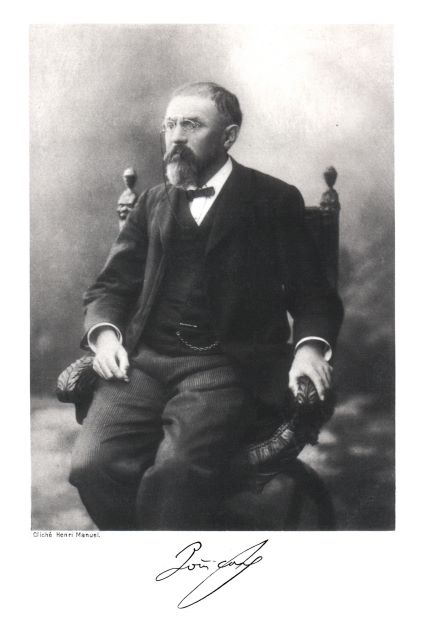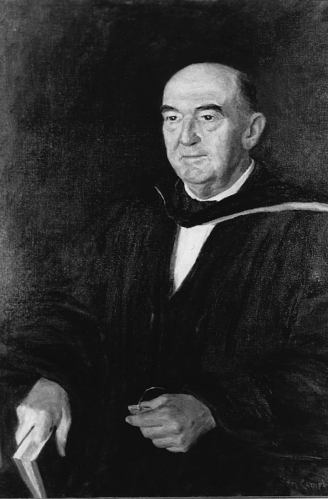- About MAA
- Membership
- MAA Publications
- Periodicals
- Blogs
- MAA Book Series
- MAA Press (an imprint of the AMS)
- MAA Notes
- MAA Reviews
- Mathematical Communication
- Information for Libraries
- Author Resources
- Advertise with MAA
- Meetings
- Competitions
- Programs
- Communities
- MAA Sections
- SIGMAA
- MAA Connect
- Students
- MAA Awards
- Awards Booklets
- Writing Awards
- Teaching Awards
- Service Awards
- Research Awards
- Lecture Awards
- Putnam Competition Individual and Team Winners
- D. E. Shaw Group AMC 8 Awards & Certificates
- Maryam Mirzakhani AMC 10 A Awards & Certificates
- Two Sigma AMC 10 B Awards & Certificates
- Jane Street AMC 12 A Awards & Certificates
- Akamai AMC 12 B Awards & Certificates
- High School Teachers
- News
You are here
Quotations in Context: Poincare
“Mathematics is the art of giving the same name to different things.”
In 1908, the Fourth International Congress of Mathematicians was held in Rome. During the Congress, the mathematician Jean-Gaston Darboux presented an address written by Henri Poincaré entitled “L’avenir des mathématiques,” and Poincaré included the paper as a chapter in his book Science et Méthode. An authorized English translation by George Bruce Halsted appeared as the chapter “The Future of Mathematics” in The Foundations of Science, first published in 1913.

Photograph of Poincaré by Henri Manuel. Public domain, Smithsonian Libraries.
The chapter began by stating the importance of studying the history of mathematics: “To foresee the future of mathematics, the true method is to study its history and its present state” [Poincaré 1913, p. 369]. Poincaré briefly described the historical evolution of the meaning of solutions in mathematics, showing that each time it appeared every possible problem had been solved, a change in accepted solution methods (such as the shift from ruler and compass constructions to extraction of roots) would open the way for new and wider exploration.
Poincaré spent some time exploring the underlying motivation and necessity for the study of mathematics. In particular, he emphasized that despite its utility to physics and other sciences, the ultimate motivation for the study of mathematics and the identification of new problems to pursue must come from within the subject itself:
Dira-t-on que, nous autres géomètres, nous devons nous borner à attendre les commandes, et, au lieu de cultiver notre science pour notre plaisir, n'avoir d'autre souci que de nous accommoder au goût de la clientèle? Si les mathématiques n'ont d'autre objet que de venir en aide à ceux qui étudient la nature, c'est de ces derniers que nous devons attendre le mot d'ordre. Cette façon de voir est-elle légitime? Certainement non; si nous n'avions pas cultivé les sciences exactes pour elles-mêmes, nous n'aurions pas créé l'instrument mathématique, et le jour où serait venu le mot d'ordre du physicien, nous aurions été désarmés [Poincaré 1909, p. 21].
Shall it be said that we geometers should limit ourselves to awaiting orders and, in place of cultivating our science for our own delectation, try only to accommodate ourselves to the wants of our patrons? If mathematics has no other object besides aiding those who study nature, it is from these that we should await orders. Is this way of looking at it legitimate? Certainly not; if we had not cultivated the exact sciences for themselves, we should not have created mathematics the instrument, and the day the call came from the physicist we should have been helpless [Poincaré 1913, p. 370].
Citing Ernst Mach’s characterization of science as producing “economy of thought” [Poincaré 1913, p. 371], Poincaré pursued the same idea in mathematics. He emphasized the importance of finding common ideas and properties, and he noted how the labeling of those properties with a word or brief phrase allows arguments and explanations to be condensed without losing rigor or clarity. He even stated that the proper measurement of the importance of a discovery in mathematics is “the amount of thought it permits us to spare” [Poincaré 1913, p. 371].
Poincaré offered a specific example in the short phrase “uniformity of convergence,” explaining how these few simple words, when properly understood, immediately evoke (and therefore abolish the need to present) the complete and rigorous mathematical definition. It was at this point that the subject quotation of this column appeared:
Nous venons de voir par un exemple quelle est l'importance des mots en mathématiques, mais j'en pourrais citer beaucoup d'autres. On ne saurait croire combien un mot bien choisi peut économiser de pensée, comme disait Mach. Je ne sais si je n'ai pas déjà dit quelque part que la mathématique est l'art de donner le même nom à des choses différentes. Il convient que ces choses, différentes par la matière, soient semblables par la forme, qu'elles puissent pour ainsi dire se couler dans le même moule. Quand le langage a été bien choisi, on est tout étonné de voir que toutes les démonstrations, faites pour un objet connu, s'appliquent immédiatement à beaucoup d'objets nouveaux; on n'a rien à y changer, pas même les mots, puisque les noms sont devenus les mêmes [Poincaré 1909, p. 29].
We have just seen by one example the importance of words in mathematics, but many others could be cited. It is hard to believe how much a well-chosen word can economize thought, as Mach says. Perhaps I have already said somewhere that mathematics is the art of giving the same name to different things. It is proper that these things, differing in matter, be alike in form, that they may, so to speak, run in the same mold. When the language has been well chosen, we are astonished to see that all the proofs made for a certain object apply immediately to many new objects; there is nothing to change, not even the words, since the names have become the same [Poincaré 1913, p. 375].
Out of context, it is possible to misinterpret “giving the same name to different things” as saying that words in mathematics are used in confusing or misleading ways, using the same word to label very different concepts. However, it is clear that Poincaré’s intent was very different: he was instead emphasizing that otherwise completely different objects can share some similar structures and properties, and mathematics can use a terse word or phrase to identify and describe in detail these common features.

Painting of Cassius Jackson Keyser by artist Helena Eastman Ogden Campbell, ca 1920.
Image provided courtesy of the National Portrait Gallery.
Almost every modern source pairs the subject quotation in this column with a similar sounding one: “Poetry is the art of giving different names to the same thing.” Many of these modern sources go even further, making the claim that Poincaré’s quote was made as a direct response to this aphorism on poetry; however, there is no evidence in support of this claim, since “The Future of Mathematics” contains no reference to poetry at all. The original connection between these two quotations appears to be the article, “Three Great Synonyms: Relation, Transformation, Function,” by Cassius Jackson Keyser, which was first published in the journal Scripta Mathematica in 1935. In the paper, Keyser stated that he shared the Poincaré quotation with an unnamed poet, who quickly responded with the alternative quotation [Keyser 1947, p. 218]. So, according to Keyser, the quotation on poetry was in response to Poincaré, not the other way around.
References
Keyser, Cassius Jackson. 1947. Mathematics as a Culture Club and Other Essays. Vol. 1 of The Collected Works of Cassius Jackson Keyser. New York: Scripta Mathematica.
Poincaré, Henri. 1909. Science et Méthode. Paris: E. Flammarion.
Poincaré, Henri. 1913. The Foundations of Science. Translated by George Bruce Halsted. New York: Science Press.
“Quotations in Context” is a regular column written by Michael Molinsky that has appeared in the CSHPM/SCHPM Bulletin of the Canadian Society for History and Philosophy of Mathematics since 2006 (this installment was first published in November 2012). In the modern world, quotations by mathematicians or about mathematics frequently appear in works written for a general audience, but often these quotations are provided without listing a primary source or providing any information about the surrounding context in which the quotation appeared. These columns provide interesting information on selected statements related to mathematics, but more importantly, the columns highlight the fact that students today can do the same legwork, using online databases of original sources to track down and examine quotations in their original context.
Michael Molinsky (University of Maine at Farmington), "Quotations in Context: Poincare," Convergence (December 2023)




